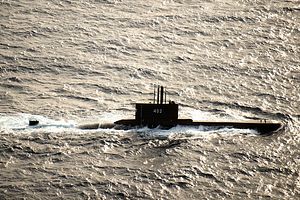On July 10, Indonesian media outlets reported that the legislature had moved toward approval of a defense cooperation agreement between Indonesia and South Korea. While the development itself has long been in the works, it has nonetheless put the focus on the ongoing security collaboration between the two sides as part of their wider bilateral relationship.
As part of their wider diplomatic ties that date back to 1973, Indonesia and South Korea also have been pursuing defense collaboration as well. Indonesia today is among the biggest importers of South Korean defense equipment, and cooperation on projects has continue to proceed to varying degrees, from submarines to the development of the new KF-X/IF-X fighter aircraft which has been running into some complications (See: “Where is Indonesia-South Korea Defense Industry Cooperation Headed?”).
Both sides continue to look for new opportunities in their defense collaboration, and that has continued on after South Korean President Moon Jae-in came to office last year and advanced his New Southern Policy, which includes an emphasis on strengthening ties with Southeast Asian states and ASEAN (See: “What Does Moon’s New Southern Policy Mean for ASEAN-South Korea Ties?”). Indeed, when Moon paid his first state visit to Indonesia last year, both sides discussed several areas where ties could be strengthened, from more consultation mechanisms to further collaboration in areas such as cybersecurity.
One of the formal manifestations of ongoing defense collaboration has been an agreement on defense cooperation, initially inked by both sides back in October 2013 based on some of the earlier pacts that were agreed. As with some of the other pacts Indonesia has signed with states, the agreement, which specifies the scope of collaboration between the two sides, has been awaiting official legal approval.
On July 10, Indonesian media outlets reported that Indonesia’s legislature moved to ratify the defense pact between the two sides. The development came following a meeting and discussions between government officials, including those from the defense ministry and foreign ministry, and the members of Commission I of the Indonesian House of Representatives, which oversees defense relations.
The move toward the pact’s approval represents yet another move to strengthen the legal basis for ongoing defense cooperation between the two countries. As Indonesian Defense Minister Ryamizard Ryacudu said, a “formal legal umbrella” is needed to advance such collaboration in order to both more concretely implement aspects of it as well as to ensure that defense ties are more effective and productive.
The impact on the actual substance of ongoing bilateral collaboration remains to be seen. While Ryacudu and others have reinforced the importance of specific areas of cooperation such as the KFX/IF-X fighter jet program, there are nonetheless more technical issues that will need to be sorted for things to advance, rather than more general steps such as the strengthening of the legal framework for defense ties.
































